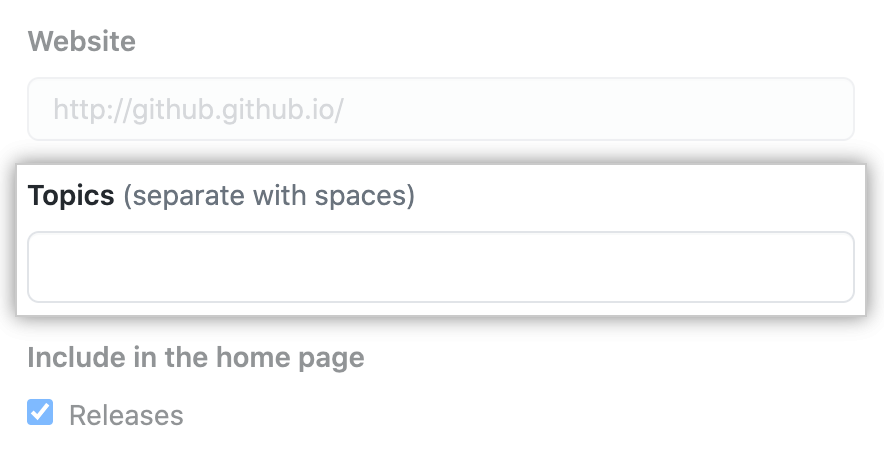About topics
With topics, you can explore repositories in a particular subject area, find projects to contribute to, and discover new solutions to a specific problem. Topics appear on the main page of a repository. You can click a topic name to see related topics and a list of other repositories classified with that topic.

To browse the most used topics, go to https://github.com/topics/.
You can contribute to GitHub's set of featured topics in the github/explore repository.
Repository admins can add any topics they'd like to a repository. Helpful topics to classify a repository include the repository's intended purpose, subject area, community, or language. Additionally, GitHub analyzes public repository content and generates suggested topics that repository admins can accept or reject. Private repository content is not analyzed and does not receive topic suggestions.
Public, internal, and private repositories can have topics, although you will only see private repositories that you have access to in topic search results.
You can search for repositories that are associated with a particular topic. For more information, see "Searching for repositories." You can also search for a list of topics on GitHub. For more information, see "Searching topics."
Adding topics to your repository
- On GitHub, navigate to the main page of the repository.
- To the right of "About", click .

- Under "Topics", type the topic you want to add to your repository, then type a space.

- After you've finished adding topics, click Save changes.
